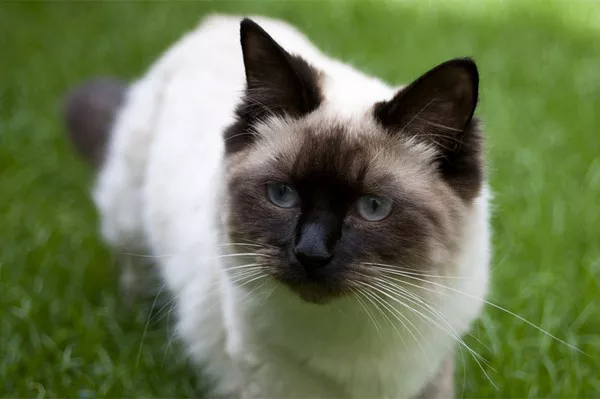Cats, known for their independent and mysterious nature, thrive on positive experiences within their indoor environments. Ensuring they engage in natural behaviors, feel secure at home, and utilize their keen sensory capabilities, including a heightened sense of smell, contributes to a fulfilling feline life.
Plants such as catnip, cat thyme, and silver vine have emerged as potent aromatic stimulants, capable of influencing the moods and minds of our feline companions.
The Power Trio: Catnip, Cat Thyme, and Silver Vine
In an effort to alleviate boredom and frustration in indoor cats, owners often introduce fresh or dried catnip (Nepeta cataria), silver vine (Actinidia polygama), cat thyme (Teucrium marum), or alternative plant materials like valerian (Valeriana officinalis) and Tatarian honeysuckle (Lonicera tatarica). These botanical additions, when integrated into toys, can elicit seemingly euphoric behavior in domestic cats, mirroring responses observed in larger feline counterparts such as leopards and jaguars. However, not all cats exhibit this behavior, suggesting a genetic component to their responsiveness.
Safety Considerations for Feline Treats
Given a cat’s highly developed sense of smell, certain plants release chemical compounds, like nepetalactone found in catnip and silver vine, which may deter insects or attract predators. Nepetalactone exposure is believed to increase feel-good hormones in cats and may act as a natural mosquito repellent, though its effectiveness varies. When cats encounter these plants, behaviors such as rolling, chin rubbing, licking, head shaking, and a wavelike motion of the skin over their backs ensue. These responses are short-lived, typically lasting seconds to minutes.
Contrary to concerns about addiction, cats are more likely to become habituated and desensitized to these stimulants over time, with diminishing effects. There is no evidence that these substances alter feline minds in a manner akin to alcohol or drugs in humans. While marketed humorously as “kitty crack” or “meowijuana,” the evidence supports the safety of these treats, ensuring they don’t induce adverse effects or dependency in cats.
Ethical Considerations: Enhancing Feline Lives
When evaluating the ethical implications of providing olfactory stimulants to cats, the focus lies on whether the benefits outweigh potential harms. Despite playful marketing terms, these plant-based treats don’t induce psychosis, addiction, or withdrawal symptoms in cats. Unlike offering alcohol to a child, the evidence suggests that cats, when given access to these treats, experience moments of joy without compromising their well-being. The use of synthetic feline facial pheromones further exemplifies how we leverage cats’ sense of smell to alleviate fear, anxiety, and distress in various situations.
Ensuring a Purr-fect Experience for Your Cat
While offering olfactory stimulation is one way to enrich a cat’s life, it’s crucial to consider a holistic approach to their well-being:
Provide choices for cats to interact with treats and toys, avoiding forced interactions.
Rotate toys and experiences regularly to offer fresh stimuli.
Incorporate items like scratching posts to fulfill natural scratching instincts.
If concerns arise about a cat swallowing a toy or displaying signs of illness, consult a vet promptly.
Given the transient effects of plant-based olfactory stimulants, optimizing a cat’s environment, lifestyle, and human interactions becomes pivotal in enhancing their overall welfare. Ultimately, it’s the responsibility of cat owners to curate an environment that ensures a fulfilling and enjoyable life for their feline companions, beyond the allure of catnip or silver vine.























